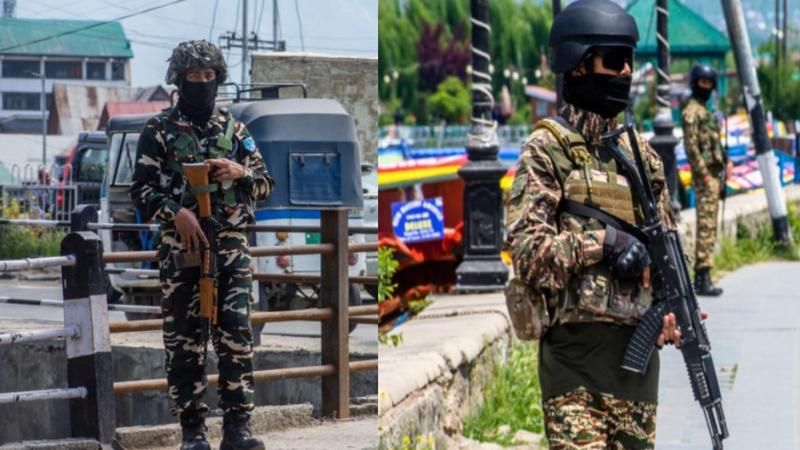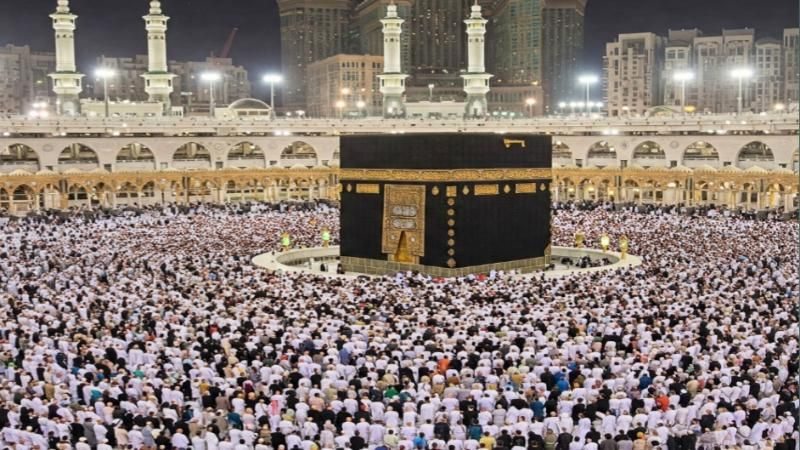People around the globe watched with concern this week as tensions between India and Pakistan threatened to erupt into full-scale war.
For members of diaspora communities in the UK, particularly those with family in Kashmir or near the India-Pakistan border, the past few days have been filled with fear and uncertainty.
A U.S.-brokered ceasefire on Saturday brought a measure of relief, although its impact was tempered by fresh cross-border shelling and explosions in Indian-administered Kashmir shortly after the truce was declared.
Despite doubts about how long the ceasefire will last, many in the UK’s South Asian community expressed cautious hope. In London’s Parliament Square, demonstrators gathered to call for peace and de-escalation.
“It was an emotional moment. We cried tears of joy,” said Raman, 26, originally from India. “I live near the border, and the fear of what might happen was overwhelming. I’ve barely slept for days.”
Nasreen Rehman, 74, echoed the sentiment. “We may have narrowly avoided catastrophe, but lives have already been lost. Thank goodness for some reprieve.”
Tensions escalated after an attack in Kashmir killed 26 people, prompting India to temporarily suspend the Indus Waters Treaty, a key agreement governing water usage between the two nations.
Rehman expressed concern about this move. “At the end of the day, we are all human. We share history and a future. Cutting off water—what kind of message does that send?”
While the ceasefire offers hope, many remain skeptical about its longevity.
Rajiv Sinah, 27, said, “How many times have we heard the word ‘ceasefire’ only for violence to resume? Just like in Israel-Palestine, it becomes meaningless without real change.”
He stressed the ongoing relevance of the peace protest. “Our demonstration is not just about ending violence—it’s about demanding a path forward. Ordinary people in India, Pakistan, and Kashmir want peace, not war.”
Tarun Gidwani, 36, agreed, calling the ceasefire a “temporary relief,” but warned that tensions remain high. “There’s no clear roadmap for peace. People back home are still scared. Schools and workplaces are running mock drills. It’s alarming.”
Shakuntala Banaji expressed cautious optimism. “The national interest for both India and Pakistan lies in upholding the ceasefire,” she said, urging the UK government to take a neutral stance.
She criticized the UK’s political approach, particularly Labour’s recent moves, such as announcing a trade deal with India while tightening visa rules for Pakistani nationals. “This kind of divisive politics between communities is damaging,” she said.
Banaji emphasized the need for solidarity: “We must put our shared humanity ahead of political divisions. Moving forward means moving forward together.”



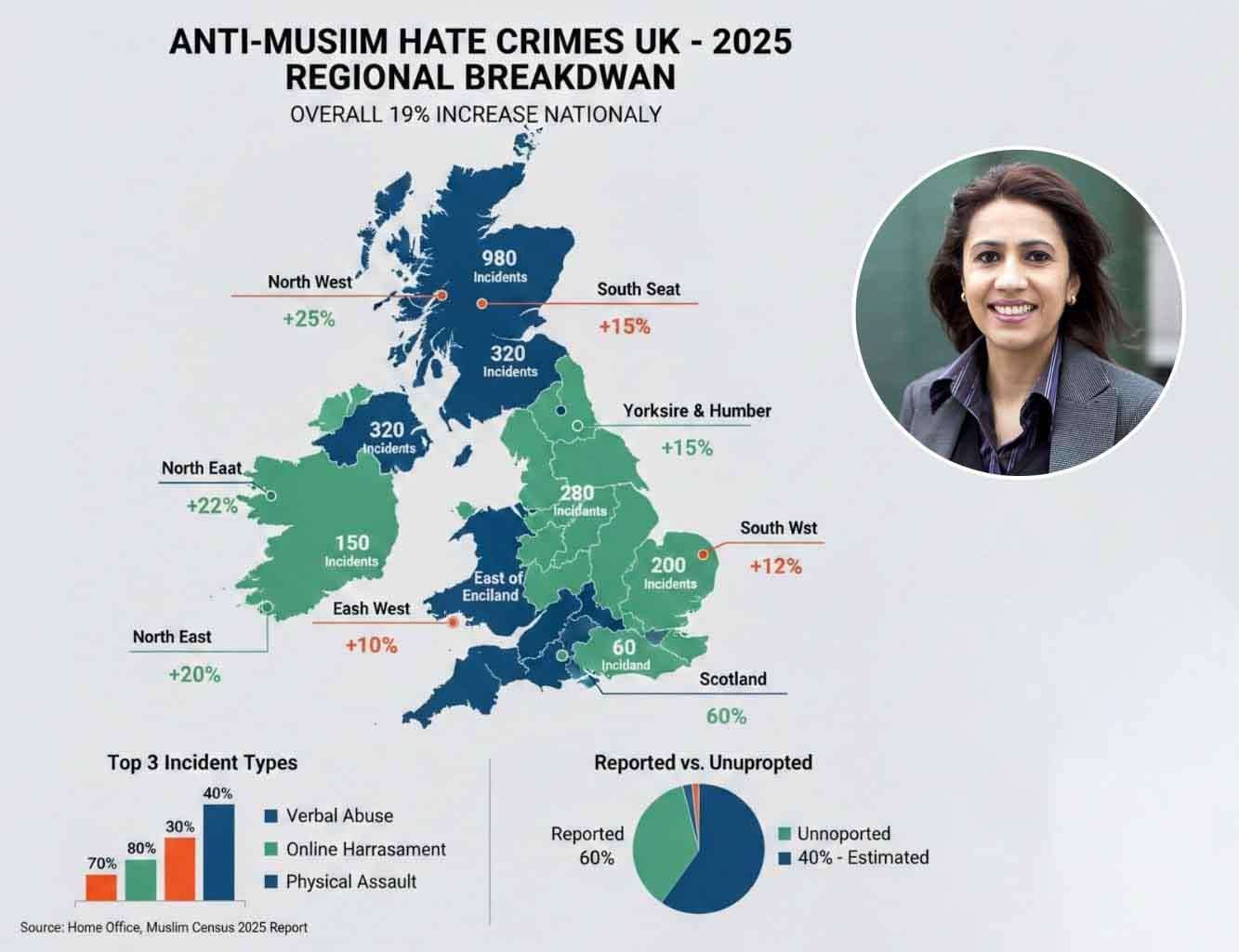
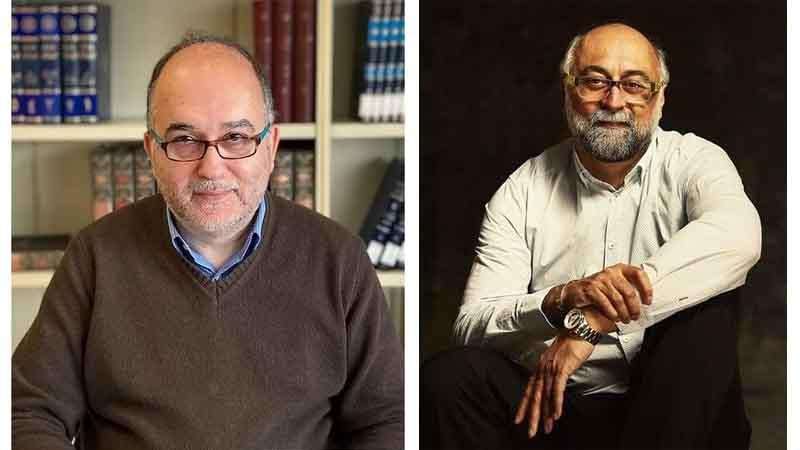


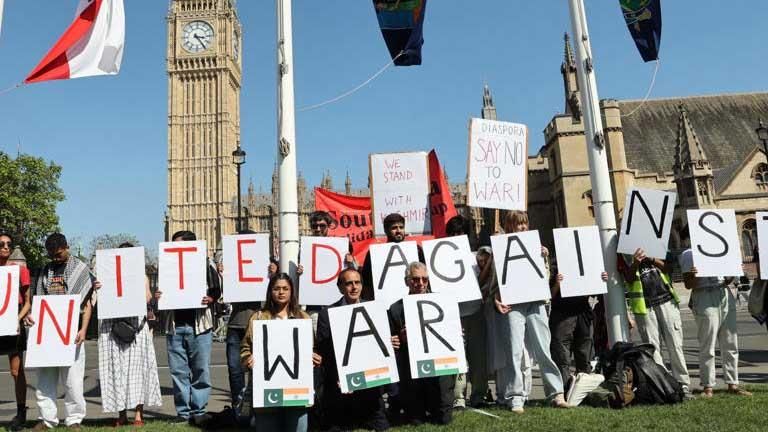
.svg)

